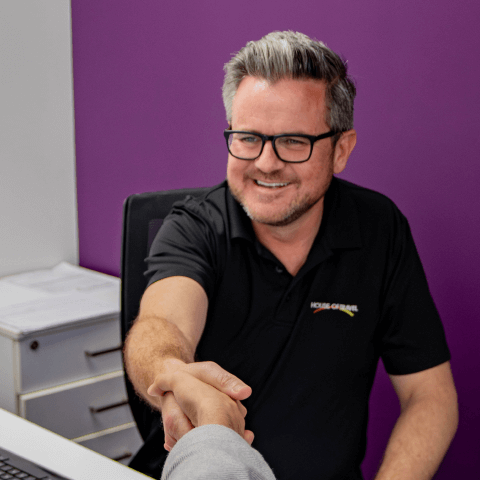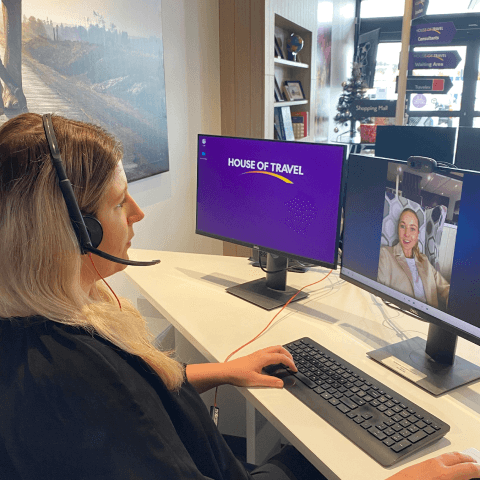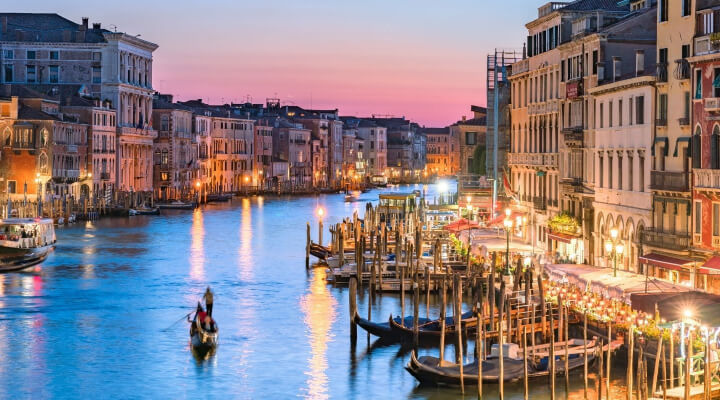“There’s a comparison website for almost every service in the UK. Check out what SIM-only plan would work the best for you holiday here.”
UK travel tips: What to know before you go

The lowdown on all things United Kingdom
It’s a fabulously confusing old land, the UK. Technically, they speak English – but stroll into a pub, shop or newsagent (that’s a dairy, by the way) and you might start second-guessing your own language skills. They might be greeting you, but in what accent? That’s anyone’s guess.
And don’t get us started on the food. Chips that aren’t chips, puddings that aren’t dessert, and pies filled with… surprises. Navigating it all takes a sense of humour and a touch of courage.
So how on earth is a foreign visitor meant to survive – let alone thrive? These top tips should steer you in the right direction. Battle on, old chum. Battle on.
What defines the UK, exactly?
The United Kingdom includes England, Scotland, Wales, and Northern Ireland; in total, six counties of Ireland. Southern Ireland (now the Republic of Ireland, previously the Irish Free State) is not part of the UK.



1. How long can I stay without a visa?
New Zealand passport holders can enter the UK for six months without a visa if they are in the UK for a holiday.
2. What’s the local currency?
In the UK, the currency is British pound sterling — but you’ll hear locals call it “pound” or “quid.” Head across to the Republic of Ireland and you’ll need euros instead, but don’t get too comfortable — in Northern Ireland, it’s back to pounds again.
Hot tip: Never pluralise your quid. It’s one quid, ten quid… but never ten quids. The locals will spot you a mile off.
3. Do I need to tip?
The UK’s tipping culture is a bit more generous than ours in New Zealand, but nowhere near the American level. As a general rule, aim to tip around 10% at restaurants – unless the service was truly dreadful (in which case, don’t feel obliged). Unlike here, hospitality wages in the UK are more crumbs than crust, and many wait staff rely on tips to make ends meet.
In pubs, the old phrase “And one for yourself” still gets a run – a polite way of offering the bartender a tip. What they take depends on the bartender: it could be 50p, maybe a pound. When in doubt, pay in cash and round up – it’s appreciated and keeps things simple.
You might spot tip jars in cafés, but don’t expect them to be overflowing. Most Brits will drop in a few coppers... or the occasional rogue receipt.
4. Transfers to and from the Airport
We guarantee after a 24+ hour flight from NZ, you won't want to deal with a transfer via public transport; getting out of Heathrow Airport (the busiest airport in the world) alone can take up to 1.5 hours. Ask your House of Travel consultant about booking a transfer before you even leave NZ. Trust us, you'll be thankful.
Really don't want to book a transfer? There are three main airports in London: Gatwick, Heathrow and Stansted. For all information on how to get from all three airports to London central, click here.


5. Getting around
London Underground: Also called the tube. Probably the easiest and most economical means of getting around the capital (definitely get yourself an Oyster card). You can now also use your credit card to tap and go for the tube, however, we would still recommend getting an oyster card for ease. When the tube folk are doing track work, it's usually done at weekends, so always check which lines are operating on your day of travel. Especially if you're heading to the airport! For more information click here.
Uber: Uber is all over London and most major cities but you won’t find it in smaller towns and villages - yet!
Taxis: In the city, don’t always presume Uber is cheapest. Many of the longstanding taxi firms got savvy and are now competitively priced, and sometimes cheaper.
Black cabs: A resolutely London thing to do, but you’ll be paying by the metre. And in London, when traffic moves at a snail’s pace, you won’t go far for £20.
Trains: One of the best ways to get around the country, the UK’s train system is centuries old and therefore well established. It’s efficient, quick and easy. Eg, London to Manchester is a two hour train journey, compared to five hours in a car. Book three months in advance for the cheapest tickets. If you book on the day of travel, you’ll be paying premium. Check routes, fares and timetables here.
Oyster Card: In London, invest in a Visitor Oyster card to pay for journeys on the bus, Tube, tram, DLR, London Overground, TfL Rail, River Bus and most National Rail services. Use it like a pay-as-you-go smartcard and only top up when necessary. Fares are cheaper than buying a paper single ticket and if you’re savvy, and cap your daily journeys, it’ll work out half the price per day of a Day Travelcard.

6. Weather: What can you expect when you go?
The weather in the UK varies significantly depending on the time of year and location.
Spring (March to May) ranges from 6°C to 15°C, with frequent rain and some sunny days.
Summer (June to August) sees temperatures from 14°C to 30°C, warmer in the south with occasional rain.
Autumn (September to November) cools to 7°C to 18°C, with mixed sunny and rainy weather.
Winter (December to February) is cold, between 0°C and 7°C, with more severe conditions and snow in the north and higher altitudes.
Regions:
South of England: Generally warmer and sunnier than the north. London and the south coast enjoy milder winters and warmer summers.
North of England and Scotland: Colder and wetter, with more snowfall in winter, especially in Scotland.
Wales: Similar to England but often wetter, especially in the west and mountainous regions.
Northern Ireland: Mild but wet, with less extreme temperatures compared to other parts of the UK.
7. Rules and customs
Queueing – Push in at your own risk.
Football – Is huge in the UK and people are passionate about it. Much more so than rugby. Unlike rugby, fans sit separately in the stadium (for safety) but do try and experience a match because you'll be bowled over by the atmosphere. Be cautious about buying tickets to a 'derby' because the rivalry will be rife, and less suitable for those with small children. Also, expect a friendly dressing down if you refer to it as soccer.
Motorway driving – Overtake on the right and only the right. Undertaking is illegal and will cause a great deal of irritation. And danger. And if the ‘rozzers’ catch you, you’re definitely in trouble.
The driver’s wave – There are more than 25 million cars on the road in the UK, so a little etiquette goes a long way. If you’re on a self-drive, always wave as a signal of ‘thanks’ when another driver gives you right of way. Not doing so is considered worse than jumping a queue (and you might cop a fair amount of flack - or the finger - back).
Flashing lights – At night you might see drivers flashing their indicators once on each side, or a single quick flash of their full beams. This is how British drivers say thanks in the dark.
Sarcasm – Is rife. Embrace it.
Coffee – Good luck. They’re getting better but it’s a work in progress. Chain coffee shops aren't sniffed at quite as much as they are in NZ. Duck into Costa, Cafe Nero, Pret a Manger and (at a push) Starbucks for a semi-decent flat white.
The Sun Newspaper – And finally, a sensitive one. But interesting nevertheless. Nobody reads The Sun newspaper in Liverpool (one of Blighty's most popular national newspapers) because the paper wrongly reported Liverpool FC fans as the culprits of the 1989 Hillsborough Disaster, which killed 96 people, The Sun is not sold or tolerated. You'll even see signs on trains and shop windows saying "The Sun isn't sold/read here". And we'd advise following suit or you'll likely find yourself in hot water.

8. Where to have fun
If the sun’s out (miracles do happen), make a beeline for the pub. When in doubt – or just a bit bored – the Brits head to their local. Not every pub is all roaring fires and craft ales though; for every charming village inn, there’s a sticky-floored dive. Stick your head in first for a quick vibe check.
Fancy something more raucous? Go to a footie match. The atmosphere is a world away from rugby – loud, tribal and wildly entertaining. Don’t expect to sit with the rival fans though. Things can get heated, but the chants and banter are all part of the show.
Shopping? Absolutely. The Brits love a good spree – and you might just find the prices are friendlier than back home. While you’re there, grab a slab of UK Cadbury’s and prepare to be outraged (in the best way) at how different it tastes.
And of course, make time for two culinary classics: afternoon tea and a proper Sunday roast. You haven’t truly experienced Britain until you’ve eaten a Yorkshire pudding. Look for a place that does them homemade – frozen ones are a crime against gravy.
9. What to do in an emergency
The UK is a relatively safe country but like anywhere, there is more crime in the cities. Call 999 if you have an emergency, this covers the police, fire service, ambulance and coast guard.
House of Travel recommends anyone travelling to the UK and Europe registers with Safe Travel. As well as offering invaluable travel advice, should an emergency arise, they can find you, check your well-being and send important travel information.
We also recommend safely and securely storing three important travel documents (your passport, credit card and driver's license) on your phone. Use an app such as Traveler ID which will safely store a series of documents. Of course, you might lose your phone, so store them in the Cloud or your saved emails as well.
10. Mobile usage – to roam or not to roam?
As a general rule, grab yourself a UK SIM card if you think you’ll spend over $50 in data roaming charges. You can pick up a pay-as-you-go SIM card from most UK phone stores for roughly £25, and that’ll included unlimited data for 30 days. As well as a few hundred free minutes and texts. Simply make sure your phone’s unlocked and then ditch the SIM when your holiday’s done.
The largest UK phone companies are Orange, Vodafone, Three and O2, but you can also nip into 'The Carphone Warehouse' which sell them all. For really cheap SIMS, pop into one of the local supermarkets: Tesco and Sainsburys also promote phone deals.
HOT's top 5 UK eats
11 | Is the water safe to drink?
Absolutely. It might not taste the nicest in big cities, but get out into the countryside and it’ll be borderline delicious. As will your tea – makes a great cuppa.
12. HOT’s top insider tips
Dine in for Two
A little secret you won't know unless you've spent extended time in the UK. If you're self catering, keep an eye out for Marks & Spencer's Dine in for Two. You can bag a main, side and starter or dessert all for £12. Woolworths this is not, premium dinners include 21-day matured Sirloin steaks, smoked sea bass and Scottish salmon fillets. Your dessert will also be decadent. All this for $24.
UK shopping is always cheaper than NZ
The UK’s largest designer outlet complex is McArthur Glen Designer Outlet. Just a 45-minute drive out of Manchester (and it’s the one M56 motorway all the way) this outdoor shopping complex is home to 145 designer boutiques, from Burberry to YSL, Nike, Ralph Lauren, Mulberry and 140 more. It's huge so allocate at least half a day.
When in Edinburgh walk to Stockbridge
When in Edinburgh, get off the tourist circuit and head to Stockbridge. A pretty wee village just a ten minute walk from Princes Street, if you fancy saying "cheerio the nou" (Scottish for goodbye apparently) to the tourists, this is where you'll find more locals.
Eat a bag of fried chips outside the smallest house
Go inside Great Britain’s smallest house in the quaint fishing village of Conwy, North Wales. It’s just 6 foot wide and only a fraction higher. Located in the picture-perfect seaside town of Conwy, complete with its own castle and shops selling traditional sticks of seaside rock, there's nowhere better to sit and eat scraps (a term used in England which refers to left over chip batter).
Holidaying with kids
The UK's two biggest and best theme parks are Alton Towers and Thorpe Park, both owned by Merlin Entertainments. Alton Towers is convenient if you're 'up north' and Thorpe Park is your south option. Both are huge, and akin in size and serious G-force as any of the Gold Coast's premier theme parks.
While in London make sure you go to to the Warner Bros. Studio – The Making of Harry Potter Tour. It is incredible, even if you are not huge Harry Potter fans.
Tickets sell out well in advance so be sure to pre-book. Buying a London Pass gives you a discount to Warner Bros. Studio Tour and it’s a great value way to explore more of London.
A little known dime in the UK's north-west
Families love the award-winning Crocky Trail. An outdoor adventure playground in the muddy outdoors, scramble through trees, crooked bridges and swing over the fast flowing Crocky stream. Wear old clothes because if you trip, fall or slip, you're only going one way - into the mud. Location deets here.
Free stuff in the capital
London needn’t break the bank. If you’re holidaying in the UK, take advantage of the capital’s abundant supply of culture, art, galleries and museums. The best bit, all the world-class exhibits are free. Thank goodness for UK tax payers. Here are six of our favourite free museums and galleries.
Venture into Game of Thrones in misty Northern Ireland
With its craggy coastline and perpetual grey sky, Northern Ireland makes the perfect location for Game of Thrones. Head to County Antrim for the 820-acre walled demesne of Castle Ward, AKA Winterfell.
Have a super cheap picnic
Take advantage of a competitive UK 'meal deal'. Pop into any major supermarket (Tesco, Sainsburys), Boots or Marks & Spencer and pick up a sandwich/wrap, drink and snack for three quid. Roughly $6. A nice cheap option for a picnic.
Find a a shamrock in your Guinness froth
At the The Dirty Onion (3 Hill Street, Belfast). As a former warehouse for Jameson Whiskey, this pre-1720 abode is one of the oldest buildings in the city and now plays host to some of the best live Irish bands in the city. There is also plenty of Guinness – complete with a shamrock in your froth

13. The UK for kids
Similar to NZ, attractions for children may be numerous, but they don’t always come cheap. Many of London’s museums, plenty of which are ‘hands-on’ do offer free admittance, but that also makes them popular (read as busy). Family passes for most big attractions are common, but with enough research you can still find some free castles to visit (relics especially), and with plenty of parks, lakes, rivers and canals, you can easily find a cost-free pretty spot. Unique to the UK, canal locks are generally quite fascinating for kids – and won’t cost a penny. Most pubs are child friendly but it’s not uncommon to find an “over 18s only” sign, and they’ll be quite strict about it.
14. What adapter do I need?
In the UK the power sockets are type G. The standard voltage is 230 V and the standard frequency is 50 Hz. The plugs are a three-pronged formation.
Now you know everything you need to know about the UK, connect with a Europe specialist today!
More UK travel blogs
Best. Holidays. Ever!
Start here
Let us help you find the perfect holiday or deal. Here’s how to get in touch...

Want the inside word on all things travel?
Never miss a deal again. Sign up for our emails and get exclusive flight offers, travel tips, and be the first to know about special promotions.
By signing up, you have read or have an opportunity to read the Privacy Policy, and you agree to the provisions of the Privacy Policy.

Thanks for signing up, we’ll be in touch soon!
Hold on a sec, adventurer! We didn't quite catch your email. Sign up again to unlock your travel dreams!



















